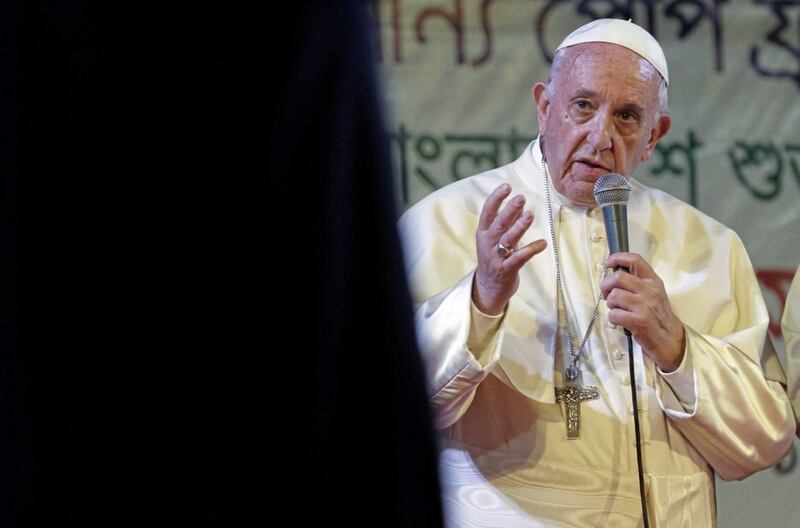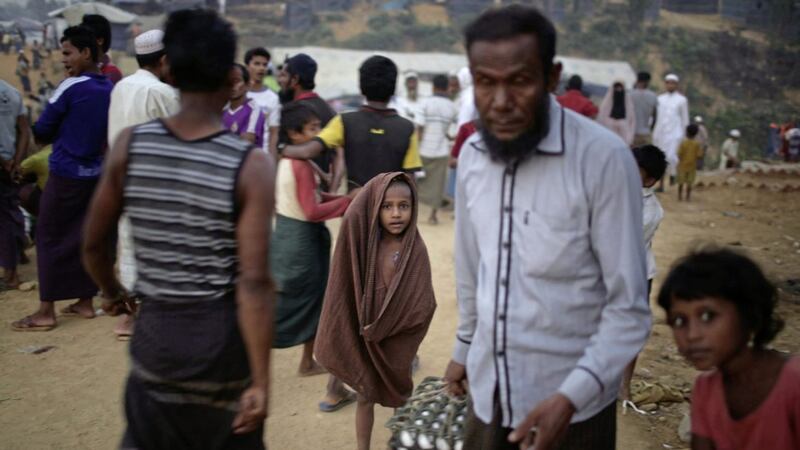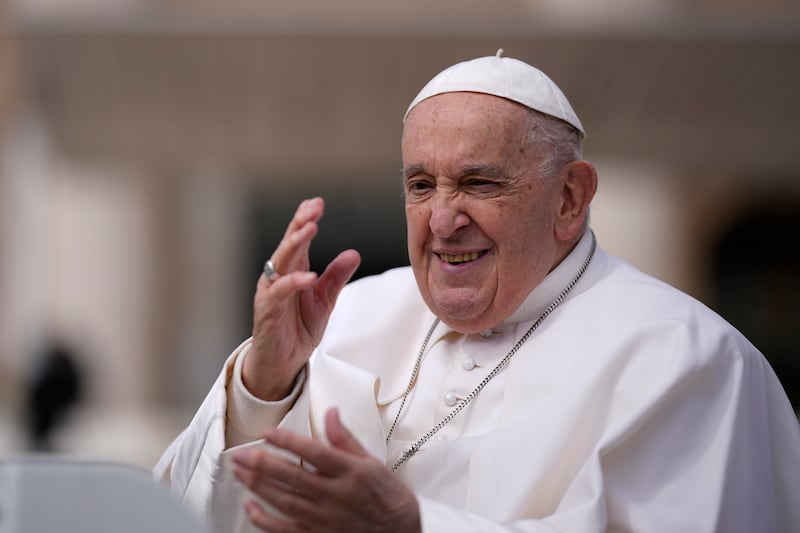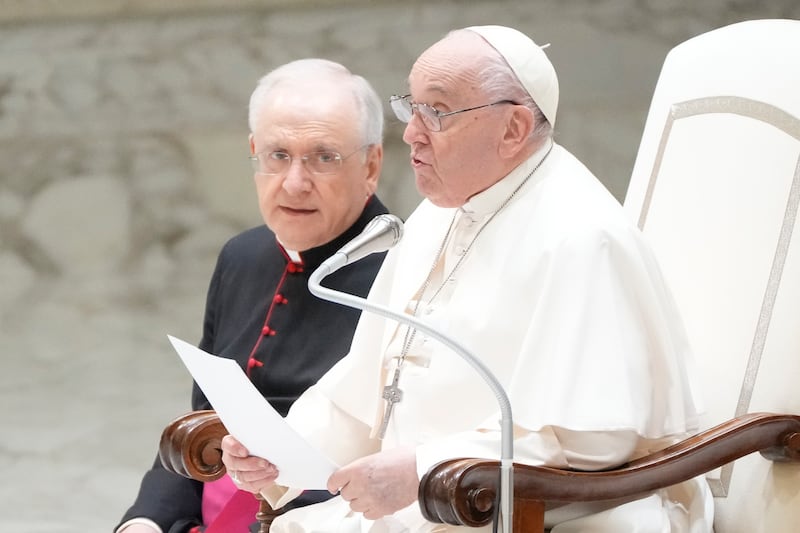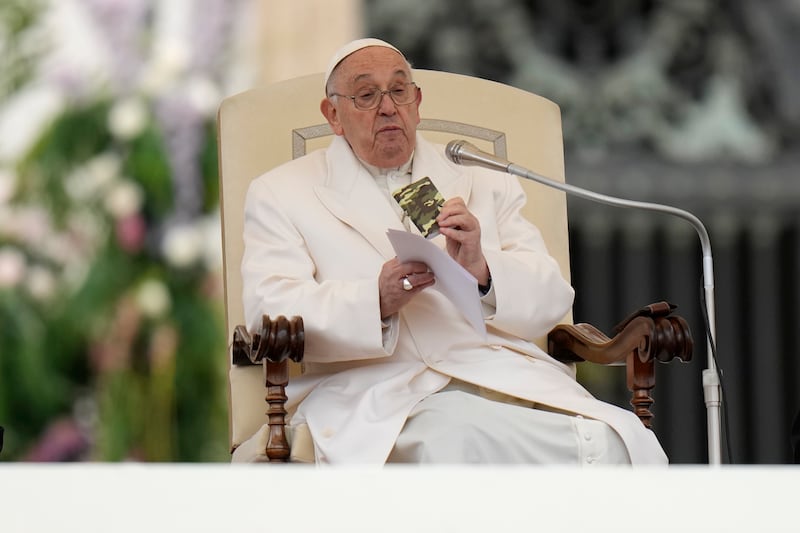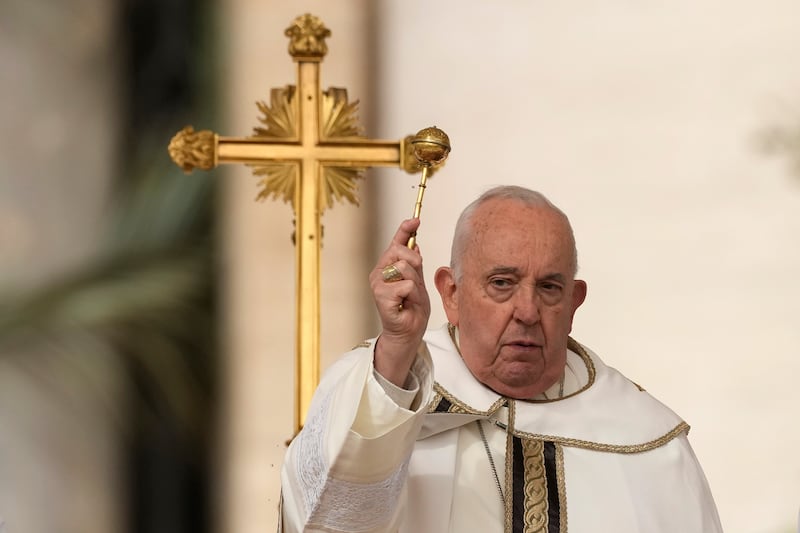PEACE, which the angels proclaimed to the shepherds on Christmas night, is a profound aspiration for everyone, for each individual and all peoples, and especially for those who most keenly suffer its absence.
Among these whom I constantly keep in my thoughts and prayers, I would once again mention the over 250 million migrants worldwide, of whom 22.5 million are refugees.
Pope Benedict XVI spoke of them as "men and women, children, young and elderly people, who are searching for somewhere to live in peace".
In order to find that peace, they are willing to risk their lives on a journey that is often long and perilous, to endure hardships and suffering, and to encounter fences and walls built to keep them far from their goal.
In a spirit of compassion, let us embrace all those fleeing from war and hunger, or forced by discrimination, persecution, poverty and environmental degradation to leave their homelands.
We know that it is not enough to open our hearts to the suffering of others. Much more remains to be done before our brothers and sisters can once again live peacefully in a safe home.
Welcoming others requires concrete commitment, a network of assistance and goodwill, vigilant and sympathetic attention, the responsible management of new and complex situations that at times compound numerous existing problems, to say nothing of resources, which are always limited.
As he looked to the Great Jubilee marking the passage of two thousand years since the proclamation of peace by the angels in Bethlehem, Saint John Paul II pointed to the increased numbers of displaced persons as one of the consequences of the "endless and horrifying sequence of wars, conflicts, genocides and ethnic cleansings" that had characterised the 20th century.
Those who, for what may be political reasons, foment fear of migrants instead of building peace are sowing violence, racial discrimination and xenophobia, which are matters of great concern for all those concerned for the safety of every human being
To this date, the new century has registered no real breakthrough: armed conflicts and other forms of organised violence continue to trigger the movement of peoples within national borders and beyond.
Yet people migrate for other reasons as well, principally because they "desire a better life, and not infrequently try to leave behind the 'hopelessness' of an unpromising future".
They set out to join their families or to seek professional or educational opportunities, for those who cannot enjoy these rights do not live in peace.
Furthermore, as I noted in the Encyclical Laudato Si', there has been "a tragic rise in the number of migrants seeking to flee from the growing poverty caused by environmental degradation".
Most people migrate through regular channels.
Some, however, take different routes, mainly out of desperation, when their own countries offer neither safety nor opportunity, and every legal pathway appears impractical, blocked or too slow.
Many destination countries have seen the spread of rhetoric decrying the risks posed to national security or the high cost of welcoming new arrivals, and by doing so demeans the human dignity due to all as sons and daughters of God.
Those who, for what may be political reasons, foment fear of migrants instead of building peace are sowing violence, racial discrimination and xenophobia, which are matters of great concern for all those concerned for the safety of every human being.
All indicators available to the international community suggest that global migration will continue for the future. Some consider this a threat. For my part, I ask you to view it with confidence as an opportunity to build peace.
Offering asylum seekers, refugees, migrants and victims of human trafficking an opportunity to find the peace they seek requires a strategy combining four actions: welcoming, protecting, promoting and integrating
Migrants and refugees do not arrive empty-handed. They bring their courage, skills, energy and aspirations, as well as the treasures of their own cultures; and in this way, they enrich the lives of the nations that receive them.
We can also see the creativity, tenacity and spirit of sacrifice of the countless individuals, families and communities around the world who open their doors and hearts to migrants and refugees, even where resources are scarce.
A contemplative gaze should also guide the discernment of those responsible for the public good, and encourage them to pursue policies of welcome, "within the limits allowed by a correct understanding of the common good" - bearing in mind, that is, the needs of all members of the human family and the welfare of each.
Offering asylum seekers, refugees, migrants and victims of human trafficking an opportunity to find the peace they seek requires a strategy combining four actions: welcoming, protecting, promoting and integrating.
'Welcoming' calls for expanding legal pathways for entry and no longer pushing migrants and displaced people towards countries where they face persecution and violence.
It also demands balancing our concerns about national security with concern for fundamental human rights.
Scripture reminds us: "Do not forget to show hospitality to strangers, for by so doing some people have shown hospitality to angels without knowing it."
'Protecting' has to do with our duty to recognise and defend the inviolable dignity of those who flee real dangers in search of asylum and security, and to prevent their being exploited.
I think in particular of women and children who find themselves in situations that expose them to risks and abuses that can even amount to enslavement.
'Promoting' entails supporting the integral human development of migrants and refugees.
Among many possible means of doing so, I would stress the importance of ensuring access to all levels of education for children and young people.
This will enable them not only to cultivate and realise their potential, but also better equip them to encounter others and to foster a spirit of dialogue rather than rejection or confrontation.
The Bible teaches that God "loves the foreigner residing among you, giving them food and clothing. And you are to love those who are foreigners, for you yourselves were foreigners in Egypt"
'Integrating', lastly, means allowing refugees and migrants to participate fully in the life of the society that welcomes them, as part of a process of mutual enrichment and fruitful cooperation in service of the integral human development of the local community.
Saint Paul expresses it in these words: "You are no longer foreigners and strangers, but fellow citizens with God's people."
It is my heartfelt hope this spirit will guide the process that in the course of 2018 will lead the United Nations to draft and approve two Global Compacts, one for safe, orderly and regular migration and the other for refugees.
Let us draw inspiration from the words of Saint John Paul II: "If the 'dream' of a peaceful world is shared by all, if the refugees' and migrants' contribution is properly evaluated, then humanity can become more and more a universal family and our earth a true 'common home'."
Throughout history, many have believed in this 'dream', and their achievements are a testament to the fact that it is no mere utopia.
